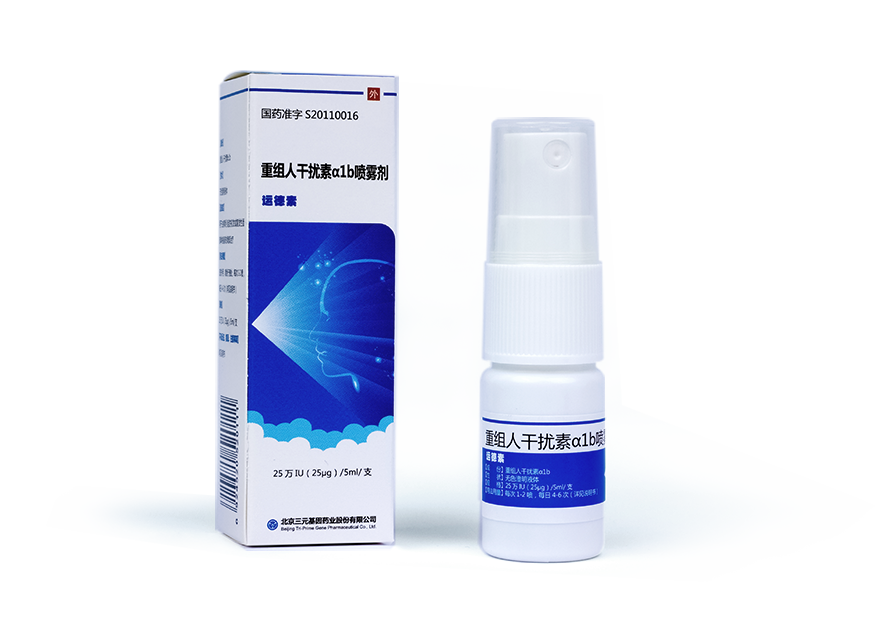Simplex herpes is a common disease in dermatology, caused by the Herpes Simplex Virus (HSV), which can be classified into type I and type II (commonly referred to as HSV I and HSV II). Humans are the only natural hosts for simplex herpes virus, with approximately 70% to 90% of adults having been infected with HSV I.
After infection with HSV I, the body produces corresponding antibodies, and usually does not exhibit clinical symptoms; those who do show symptoms account for about 10%. In the early stages of simplex herpes, the virus replicates rapidly, causing localized redness, swelling, itching or blisters, and the lesions expand rapidly to form painful ulcers, bringing much trouble to the patient's life and social interactions. Oral herpes, due to its short treatment window, requires early antiviral therapy, which is very important.
The recombinant human interferon alpha-1b spray can be directly applied to the herpes virus and surrounding tissue, with high local concentration and long duration of action, which can inhibit viral DNA replication and promote wound healing by reducing cellular damage caused by the virus. At the same time, it enhances the immune function of cells, making immunotherapy more effective in controlling recurrences of simplex herpes virus infections. The medication is convenient to use.
During the medication period, mild pain or local irritation may occur, but these symptoms usually resolve spontaneously without the need for termination of treatment.
Recommended Plan:
Apply the recombinant human interferon alpha-1b spray to the affected area, 1-2 sprays per application (80-120μl per spray), covering the entire damaged area, 4-6 times a day until the lesion heals.

 Back
Back